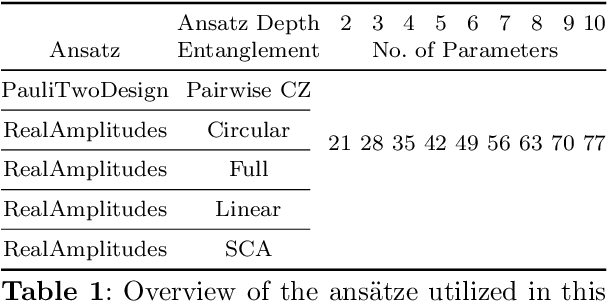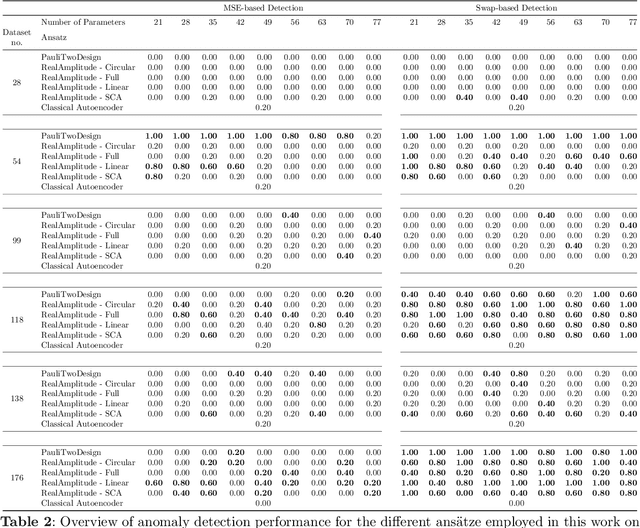Applying Quantum Autoencoders for Time Series Anomaly Detection
Paper and Code
Oct 05, 2024



Anomaly detection is an important problem with applications in various domains such as fraud detection, pattern recognition or medical diagnosis. Several algorithms have been introduced using classical computing approaches. However, using quantum computing for solving anomaly detection problems in time series data is a widely unexplored research field. This paper explores the application of quantum autoencoders to time series anomaly detection. We investigate two primary techniques for classifying anomalies: (1) Analyzing the reconstruction error generated by the quantum autoencoder and (2) latent representation analysis. Our simulated experimental results, conducted across various ansaetze, demonstrate that quantum autoencoders consistently outperform classical deep learning-based autoencoders across multiple datasets. Specifically, quantum autoencoders achieve superior anomaly detection performance while utilizing 60-230 times fewer parameters and requiring five times fewer training iterations. In addition, we implement our quantum encoder on real quantum hardware. Our experimental results demonstrate that quantum autoencoders achieve anomaly detection performance on par with their simulated counterparts.
 Add to Chrome
Add to Chrome Add to Firefox
Add to Firefox Add to Edge
Add to Edge